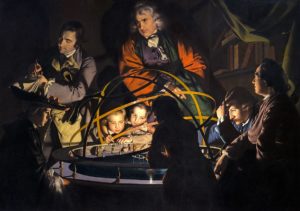 I think we’ve all heard people say that in order to repair a relationship, it’s necessary to forgive the other person first… to accept that they, like you, have their flaws, and that you will no longer hold them to account for what they did.
I think we’ve all heard people say that in order to repair a relationship, it’s necessary to forgive the other person first… to accept that they, like you, have their flaws, and that you will no longer hold them to account for what they did.
Those of us who’ve been able to follow that advice know that while it doesn’t solve everything, it is necessary. We’ve also learned that to honestly forgive does something to us; something deep and healthy.
The point I want to make today is that we need to repair the relationships we hold with ourselves, and that a necessary part of that is forgiving ourselves.
And to be clear, when I say “forgiving ourselves,” I mean forgiving every part of ourselves: body, mind, soul, etc.
The next question that comes up is Forgiving ourselves for precisely what? And for that question I have a good answer: For whatever bothers you about yourself.
The Tragic Aspect of Life
We all have things we regret having done, and even that we regret being. And for all of those, we need to forgive ourselves.
The fact is that there is a great deal of tragedy involved with life on this planet. Life here, that is to say, is tough. I don’t think humanity is doomed to that toughness forever, but it is clearly here now. And it will clearly remain here for some time.
And so we shouldn’t expect ourselves to be untouched by the tragic: We were born into it, after all.
A large part of addressing this is to forgive ourselves… to not hold ourselves to account for the difficulties we were born into.
The better we see where we’re able to go, and what we’re able to be, the better we see what C.S. Lewis called, “defects in ourselves.” We need to accept those, and to acknowledge that we were born into them… and we need to forgive ourselves for them.
Once past that, it becomes our job to repair those defects. But even here, we must recognize that we haven’t the time, energy and insight to repair them all, and certainly not right away. This again is tragic, but it’s something that has eluded all men and women through all of our history. So I think we need to accept it (at least provisionally) as a present-era fact.
I personally hope to escape the entropy and tragedy of Earth life rather sooner than later, and perhaps you do too. But if we lay blame on ourselves for a lack of immediate success, we have left the confines of reality and are injuring ourselves to no benefit. And, more practically, we slow ourselves down.
The Irony of It
It’s a funny thing, but the better we face the unlovely things about ourselves – if we can do so without attacking ourselves – the easier and faster we can repair them.
Said differently, if we expect ourselves to become one hundred percent perfect, right now… flatly ignoring the fact that we were born into a world where no has one has ever done that… we hobble ourselves.
It is by accepting our situation that we can transcend it. Yes, we’ve found ourselves with certain unlovely characteristics, but we’ve also found ourselves with capacities that seem limitless. It’s our job to transcend the former by applying the latter.
Forgiving ourselves is an essential step in moving past tragedy and into transcendence. It’s non-optional, and it works.
**
Paul Rosenberg
freemansperspective.com

Enjoying now All the saved Perspectives with Freeman’s
Happy New YEar
Awesome. 🙂
And to you too!